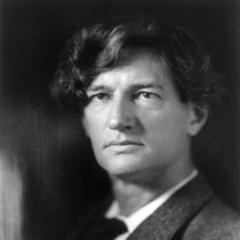William Shenstone Quotes - Page 4

William Shenstone, Samuel Johnson, Robert Dodsley (1807). “Essays on men and manners; with aphorisms, criticisms, impromptus, fragments, etc”, p.116
William Shenstone (1804). “Essays on Men and Manners”, p.42
William Shenstone (1764). “The Works in Verse and Prose, of William Shenstone, Esq: Most of which Were Never Before Printed ...”, p.137
Trifles discover a character, more than actions of importance.
William Shenstone (1804). “Essays on Men and Manners”, p.122
So sweetly she bade me adieu, I thought that she bade me return.
William Shenstone (1868). “The Poetical Works of William Shenstone: With Life, Critical Dissertation and Explanatory Notes”, p.150
William Shenstone (1794). “Essays on Men and Manners”, p.96
William Shenstone (1764). “The Works in Verse and Prose, of William Shenstone, Esq: Most of which Were Never Before Printed ...”, p.183
William Shenstone (1804). “Essays on Men and Manners”, p.43
William Shenstone (1868). “Essays on Men and Manners”, p.174
William Shenstone (1804). “Essays on Men and Manners”, p.99
William Shenstone, Samuel Johnson, Robert Dodsley (1807). “Essays on men and manners; with aphorisms, criticisms, impromptus, fragments, etc”, p.159
William Shenstone (1804). “Essays on Men and Manners”, p.98
William Shenstone (1775). “The Select Works in Verse and Prose of William Shenstone ... The Third Edition”, p.125
William Shenstone (1804). “Essays on Men and Manners”, p.66
William Shenstone (1927). “Men & Manners”
William Shenstone (1764). “The Works in Verse and Prose, of William Shenstone, Esq;: Essays on men, manners, and things. A description of The Leasowes, the seat of the late William Shenstone, Esq. Verses to Mr. Shenstone”, p.207
William Shenstone, Samuel Johnson, Robert Dodsley (1807). “Essays on men and manners; with aphorisms, criticisms, impromptus, fragments, etc”, p.151
A statue in a garden is to be considered as one part of a scene or landscape.
William Shenstone, Samuel Johnson, Robert Dodsley (1807). “Essays on men and manners; with aphorisms, criticisms, impromptus, fragments, etc”, p.59






